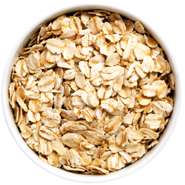Switching to low GI diet during pregnancy reduces chances of excessive weight gain by up to 20%

(Medical Xpress)—Mums-to-be can reduce their chances of excessive weight gain during pregnancy by up to 20% if they swap to a low glycaemic index (GI) diet, say researchers.
According to the findings published in the British Medical Journal, women who maintain their usual diet during pregnancy have a 48% chance of excessive weight gain. The likelihood can be reduced to 38% by switching to a low GI diet.
The study by scientists from University College Dublin and the National Maternity Hospital, Ireland, recorded an average weight gain of 13.7kg among women who remained on their usual diet during their pregnancy, against an average weight gain of 12.2kg among women who changed to a low GI diet.
"Our findings show that women who switch to a low GI diet during pregnancy are 20% less likely to experience excessive weight gain," says Fionnuala McAuliffe, Professor of Obstetrics and Gynaecology at the UCD School of Medicine and Medical Science, University College Dublin, and the National Maternity Hospital, Dublin.
"This type of excessive weight gain during pregnancy is associated with an increased need for delivery by Caesarean section, a higher likelihood of post pregnancy weight retention, and a higher predisposition to obesity in later life," adds Professor McAuliffe.
The study funded by the Health Research Board in Ireland involved over 800 mums-to-be who attended the National Maternity Hospital in Dublin over several years.
For the study, 400 of the pregnant women were selected to switch to a low GI diet. They were encouraged to eat wholegrains, brown bread, and brown rice instead of high GI foods like white rice, white bread, and cornflakes. They were not encouraged to reduce their calorie intake.
They attended an education session early in pregnancy where they were introduced to general healthy eating guidelines for pregnancy and the glycaemic index (GI) index of foods. After the session, they were given information booklets on low GI foods which included simple recipes.
These 400 women met with the dietician again at 28 weeks and 34 weeks of their pregnancy to reinforce the messages about the benefits of a low GI diet and to answer any questions.
The remaining 400 pregnant women continued with their usual diet throughout their pregnancy.
All 800 women were weighed and had their body mass index calculated at their first antenatal session. This was repeated at 28 weeks of pregnancy, where their blood glucose was also measured. The measurements were repeated again at 34 and 40 weeks of pregnancy.
"Overall the 400 women on the low GI diet during their pregnancy reported that the diet was easy to follow and to shop for, and 80% said that they followed the diet all or most of the time," adds Professor McAuliffe.
More information: Low glycaemic index diet in pregnancy to prevent macrosomia (ROLO study): a randomised control trial published online in the British Medical Journal in Sept 2012













.jpg)





